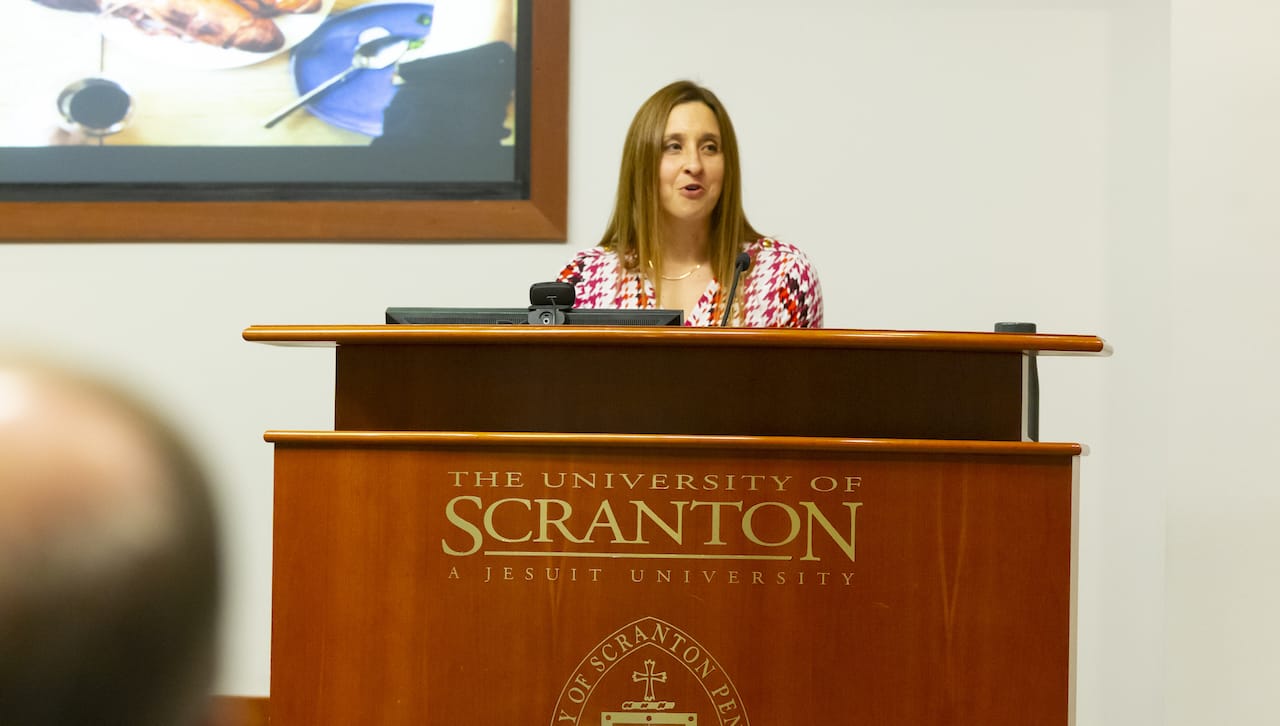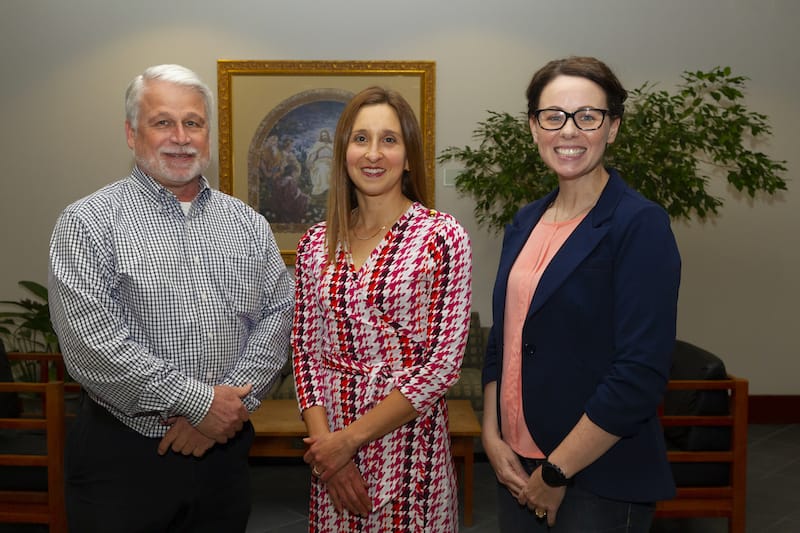The Future of Food Analyzed with Nicole Negowetti

By Lydia Grossman ’24, student correspondent
As part of The University of Scranton’s Earth Day events, Nicole Negowetti, managing director of the Plant Based Foods Institute and vice president of Policy and Food Systems at the Plant Based Foods Association, discussed her work with food, climate and culture. Her lecture, titled “The Regeneration Revolution: Working at the Nexus of Food, Climate, and Culture,” included a discussion of her research findings and work done to promote a more sustainable relationship between food production and the climate.
Negowetti began her lecture by describing food as the portal to a relationship with the planet.
“Food connects us to one another, our culture and our mother Earth,” Negowetti said, at the talk that was offered by the University’s Gail and Francis Slattery Center for Ignatian Humanities.
Although Negowetti began her talk with positive connotations of food, she quickly went into various environmental concerns and explained how the current food system sits at the heart of the problem. She explained that these problems include climate change, biodiversity loss, shifts in nutrient cycles and land use, saying society’s irresponsible methods within the food system and agricultural production contribute greatly to each issue.
“Each of us is a part of the food system. Food has tremendous potential to improve human health and environmental sustainability, but rather than nourishing our collective health and well-being, food systems are at the heart of social and environmental crisis that we face,” Negowetti said.
After sharing her various forms of research and environmental statistics concerning the current food system, Negowetti explained that the country’s large global footprint has led the Earth into the Anthropocene, which is defined as the period of time during which human activities have impacted the environment enough to constitute a distinct geological change. This era that humans have self-produced led Negowetti to pose the question: “Why are we creating a world in which none of us would choose?”
“The dominant food production system in the U.S can be categorized by large-scale monoculture in which only one plant or animal species is farmed at a time, and there’s heavy use of pesticides and fertilizers. This allows farmers to increase yields in the short term, but the practice depletes soil and nutrients over time, and has led to reduced nutrient content in food, which impairs our health,” Negowetti said.
To decrease harm and better the environment Negowetti encourages a complete transformation of the food system. In her talk, she explained that for society to truly engage in such a transformation, conversations must be regularly held to shed light on current flaws within the food system and within agricultural practices. If everyone does their part, Negowetti believes there is hope for reform.
“By cultivating our spiritual practices, can we discern what’s uniquely ours to do in these times. How we can be of service and how we can act in accordance with our values … it’s important to realize that systems change begins with us,” Negowetti said.
The University of Scranton recently announced, in answer to the call by Pope Francis to “Care for Our Common Home,” the University has begun an intensive seven-year journey to become designated as a Laudato Si’ University by the Vatican.








